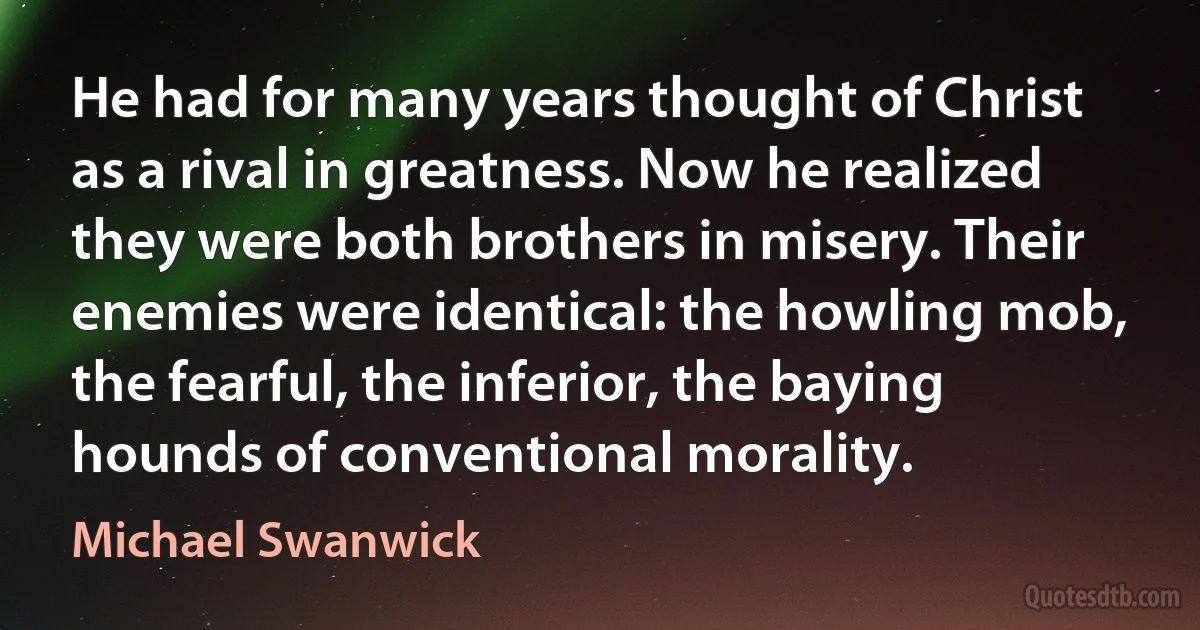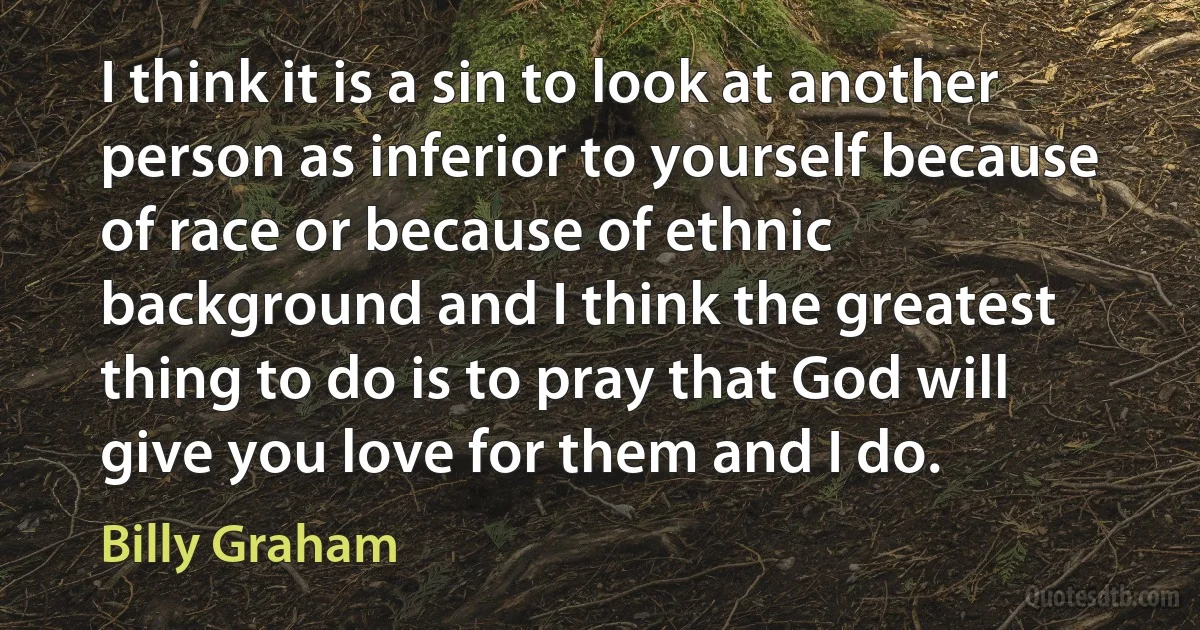Inferior Quotes - page 10
When the object of sense is very violent, it injures sense at once, so that sense, after its occurrence, cannot immediately discern its weaker objects. Thus extreme brightness offends the eye, and a very loud noise offends the ears. Mind, however, is otherwise; by its most excellent object it is neither injured nor ever confused. Nay, rather, after this object is known, it distinguishes inferior things at once more clearly and more truly.

Marsilio Ficino
Life, as it exists on Earth in the form of men, animals and plants, is to be found, let us suppose in a high form in the solar and stellar regions. Rather than think that so many stars and parts of the heavens are uninhabited and that this earth of ours alone is peopled – and that with beings perhaps of an inferior type – we will suppose that in every region there are inhabitants, differing in nature by rank and all owing their origin to God, who is the center and circumference of all stellar regions.

Nicholas of Cusa
We insist on being Someone, with a capital S. We get security from defining ourselves as worthless or worthy, superior or inferior. We waste precious time exaggerating or romanticizing or belittling ourselves with a complacent surety that yes, that's who we are. We mistake the openness of our being-the inherent wonder and surprise of each moment-for a solid, irrefutable self. Because of this misunderstanding, we suffer.

Pema Chodron
Educated women armed with computers have defeated extremists by denying them a monopoly to define cultural identity and interpret religious texts. No extremist can say that women are inferior to men without being made a laughingstock on Al Jazeera. Islam insisted on equality between everyone.

Fatema Mernissi
I grew up in a world, [a] very New Jersey, American, Dominican, immigrant, African-American, Latino world. And, you know, I went to school and it was basically the same. I went to college; it was basically the same, where largely I wasn't really encouraged to imagine women as fully human. I was in fact pretty much - by the larger culture, by the local culture, by people around me, by people on TV - encouraged to imagine women as something slightly inferior to men. And so I think that a lot of guys, part of our journey is wrestling with, coming to face, our limited imagina[tion] and growing in a way that allows us not only to imagine women as fully human, but to imagine the things that we do to women - that we often do blithely, without thinking, we just sort of shrug off - as actually deeply troubling and as hurting another human being. And this seems like the simplest thing. A lot of people are like, 'Really, that's like a huge leap of knowledge, of the imagination?

Junot Diaz
He has made me wary of chronological snobbery. That is, he showed me that newness is no virtue and oldness is no vice. Truth and beauty and goodness are not determined by when they exist. Nothing is inferior for being old, and nothing is valuable for being modern. This has freed me from the tyranny of novelty and opened for me the wisdom of the ages.

John Piper
We must now take precautions to prevent you from being embarrassed by something in which the ignorant majority is at fault for lack of proper consideration, and so from supposing with them, that man has not been created truly good simply because he is able to do evil. ... If you reconsider this matter carefully and force your mind to apply a more acute understanding to it, it will be revealed to you that man's status is better and higher for the very reason for which it is thought to be inferior: it is on this choice between two ways, on this freedom to choose either alternative, that the glory of the rational mind is based, it is in this that the whole honor of our nature consists, it is from this that its dignity is derived.

Pelagius
Then afterwards, when victory is yours, we too-all of us Bengalis-will share in the honour and the glory. We do not need to understand what is it that you have done. Or to have given you any thought, time or money, but the moment we hear the chorus or praises in The Times from the lips of the Englishmen we shall lap it up. Some important news papers in our country will observe we are not inferior men; and another paper will observe we are making discovery after discovery in science. Earlier we shall not have felt an iota of responsibility towards you, but when victory has been won and you return home bearing a crop of records, then you will be one of us. Soughing and ploughing you will do alone; reaping we shall do together. The victory you will find will be more ours than yours.

Jagadish Chandra Bose
We are obligated to depopulate as part of our mission of preserving the German population. We shall have to develop a technique of depopulation. If you ask me what I mean by depopulation, I mean the removal of entire racial units. And that is what I intend to carry out...Nature is cruel, therefore we, too, may be cruel.... I have the right to remove millions of an inferior race that breeds like vermin!

Hermann Rauschning
The slave-owner is at times visited with a nightmare. He finds that his free will, in spite of its freedom, is thwarted, not by a superior will but by things-in-themselves – by inferior wills, accidents, mistakes, and his own ignorance. Yet he is still unable to conceive his will except as being thwarted like that of his slave's by another will, and since he the master is so thwarted, might not even the world's master and his – God Himself – be thwarted in his volition by some grand over-riding will, by Will-in-Itself? This is the slaveowning conception of Moira, or Fate, a comparatively late development reaching its noblest expression in Greek tragedy. This Fate, in spite of its closeness to bourgeois determinism, betrays its slave-owning parentage by the fact that it is always visualised as a consciously forseeing Will, and always as thwarting, not determining human wills as well as events, but interfering with human wills by means of events.

Christopher Caudwell



